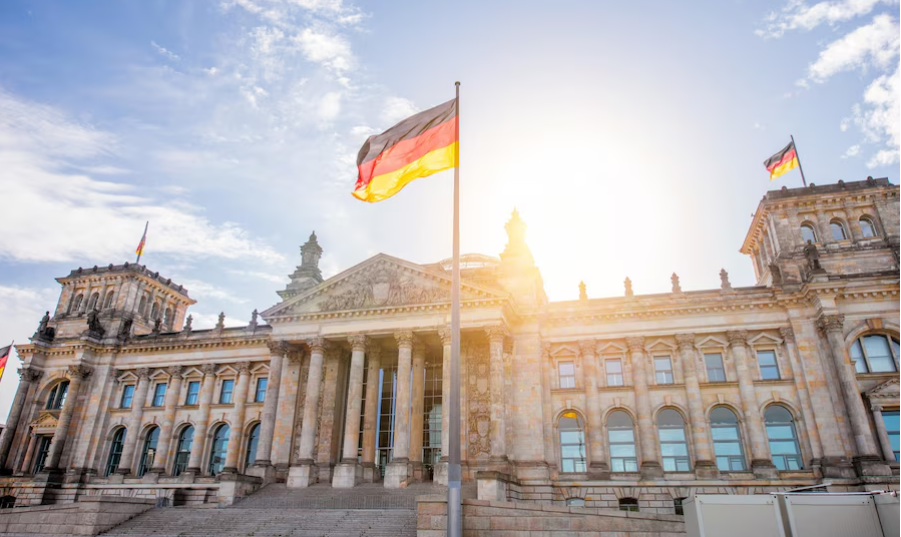 Germany in January[/caption]
Germany in January[/caption]Germany in January is a dream come true for those who love snow, cozy winter vibes, and magical landscapes. As the festive season slowly fades, the country transforms into a quieter, snow-covered wonderland that is ideal for winter sports, charming villages, and relaxing indoor activities. Whether you're planning a ski holiday or just want to experience true winter magic, January has it all.
Cold Weather, Warm Atmosphere
If you're visiting Germany in January, be ready for cold temperatures. Average highs range between -1°C to 4°C, and snow is common, especially in the southern and central regions. While the cold might seem intense, the beauty of the snowy landscapes and the cozy atmosphere of towns and cities make up for it.
January is also less crowded compared to December. The post-holiday calm means shorter queues, lower hotel prices, and a more peaceful experience overall.
Snowy Destinations for Winter Sports
Germany offers some fantastic spots for winter sports, especially in the Bavarian Alps. Here are some top places to enjoy snow activities:
- Garmisch-Partenkirchen
A famous ski resort town offering slopes for all skill levels, snowboarding opportunities, and breathtaking views of Zugspitze – the highest mountain in Germany.
- Berchtesgaden
Located in southern Bavaria, this area is ideal for skiing and relaxation. With stunning Alpine scenery, it’s also great for snowshoeing and sledding.
- Black Forest
Known for its dense evergreen woods and charming villages, the Black Forest is perfect for cross-country skiing and scenic winter walks.
Experience Magical Snow-Covered Cities
Even if you're not into skiing, Germany in January still has so much to offer. Cities like Munich, Dresden, and Nuremberg look absolutely magical with a blanket of snow.
Munich: You can stroll through snowy parks like the English Garden or warm up in one of the city's traditional beer halls.
Dresden: This city is known for its beautiful baroque architecture, which looks even more stunning with snow on the rooftops.
Heidelberg: The old town and castle covered in snow create a postcard-perfect scene. Walk along the Neckar River and enjoy the peaceful winter vibes.
Thermal Baths and Indoor Comfort
After spending time outside in the cold, nothing feels better than warming up indoors. Germany is known for its thermal spas and saunas. These places offer relaxation and a perfect break from the chilly air.
Top Thermal Spa Destinations:
- Baden-Baden: One of the most famous spa towns in Germany.
- Therme Erding (near Munich): Europe’s largest thermal bath.
- Caracalla Spa: Offers indoor and outdoor thermal pools surrounded by snow.
In Germany in January, visiting a spa after a cold day outdoors is a local favorite and highly recommended.
Seasonal Food and Warm Drinks
German winter food is rich, hearty, and designed to keep you warm. You’ll find delicious dishes like:
- Sauerbraten – Marinated Roast Beef
- Käsespätzle – Cheesy Egg Noodles
- Bratwurst with Sauerkraut – Grilled Sausage with Fermented Cabbage
And don’t forget the hot drinks! Even though Christmas markets are over, many cafes still serve:
- Glühwein – Mulled Wine (spiced and heated red wine)
- Hot chocolate with whipped cream
- Spiced tea
Eating out in Germany in January means enjoying comfort food in cozy restaurants with warm lighting and friendly service.
Winter Events and Local Culture
Although the big Christmas markets close by December 24th, January still has a few surprises:
Fasching (Carnival Season Begins)
In some regions, like Cologne and Mainz, Carnival events start in January. Expect colorful costumes, street performances, and lots of local traditions.
Winter Concerts and Opera
Many cities host winter music festivals, including classical concerts and opera performances in beautiful historical buildings.
Castle Visits in the Snow
Germany is full of castles, and many of them stay open in winter. Neuschwanstein Castle, for example, looks even more magical when surrounded by snow.
Travel Tips for in January
To make your trip smooth and enjoyable, keep these tips in mind:
- Dress in layers: Wear thermal underclothes, a warm jacket, gloves, and a hat.
- Use winter-friendly footwear: Snow boots with grip are essential.
- Check train schedules: Snow can sometimes delay transport, so keep an eye on updates.
- Book in advance: While it’s not peak season, some ski resorts and spas can fill up quickly.
With the right planning, your experience in Germany will be nothing short of magical.
Frequently Asked Questions
Is January a good time to visit Germany?
Yes, January is perfect for snow lovers and those who enjoy winter sports, peaceful cities, and indoor comfort like thermal spas and hearty food.
Does it snow everywhere in Germany in January?
Snow is common in the southern parts and mountainous regions, like Bavaria and the Black Forest. Northern cities might get light snow or just chilly rain.
What should I wear in January?
Warm winter clothes are a must. Bring thermal layers, a heavy jacket, gloves, scarf, and waterproof boots.
Are tourist places open in January?
Most attractions remain open, but opening hours may be shorter. Ski resorts, spas, and museums are fully functional during this time.
Is it cheaper to travel in January to Germany?
Yes, January is considered off-season (after New Year’s), so flights and hotels can be more affordable than in peak months like December or summer.
Final Thoughts
If you're dreaming of snow, cozy evenings, and fewer crowds, Germany in January is the ideal destination. Whether you want to ski in the Alps, explore quiet snow-covered towns, or relax in a thermal spa, this winter month offers a special kind of magic.
Plan your winter trip now with Onevasco – your trusted travel partner for smooth and stress-free visa and travel assistance.